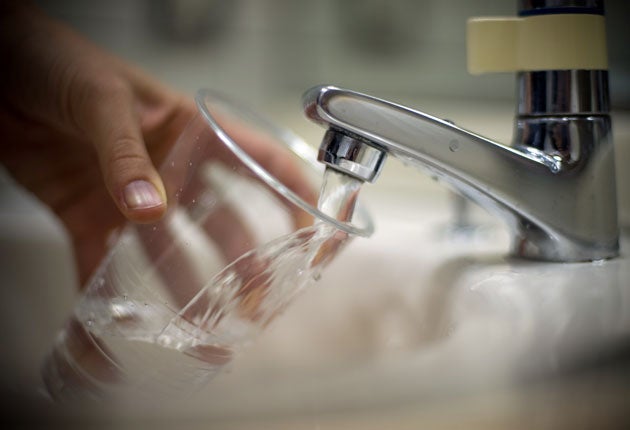Advice to drink more water dismissed as harmful nonsense
The idea that we are short of water comes from a guideline in 1945 that adults should drink 2.5l every day

Your support helps us to tell the story
From reproductive rights to climate change to Big Tech, The Independent is on the ground when the story is developing. Whether it's investigating the financials of Elon Musk's pro-Trump PAC or producing our latest documentary, 'The A Word', which shines a light on the American women fighting for reproductive rights, we know how important it is to parse out the facts from the messaging.
At such a critical moment in US history, we need reporters on the ground. Your donation allows us to keep sending journalists to speak to both sides of the story.
The Independent is trusted by Americans across the entire political spectrum. And unlike many other quality news outlets, we choose not to lock Americans out of our reporting and analysis with paywalls. We believe quality journalism should be available to everyone, paid for by those who can afford it.
Your support makes all the difference.The benefits of drinking water have become so exaggerated that people who follow official advice may even do themselves harm, a doctor warns.
Bottles of mineral water are now so ubiquitous that health-conscious people cannot make even a short journey without one. Yet the warnings about maintaining fluid levels are "not only nonsense, but thoroughly debunked nonsense", Margaret McCartney, a general practitioner in Glasgow, said.
Official advice issued by the NHS says that people should "try to drink about six to eight glasses of water (or other fluids) a day to prevent dehydration". Many schools also require pupils to bring a water bottle to school. But Dr McCartney said there is no high-quality evidence to support these claims, which are repeated by bottled-water companies to boost their sales.
The idea that we are all short of water is thought to derive from a 1945 recommendation that adults should consume 2.5l of water daily, 1ml for every calorie consumed, though this advice has only caught on in the last decade. But the crucial part of the recommendation is usually ignored – that "most of this quantity is contained in prepared foods".
Hydration for Health, an initiative aimed at medics to promote the drinking of water, which was created and is sponsored by Danone, the French maker of Evian, Volvic and Badoit bottled waters, says "many people, including children, are not drinking enough". It recommends "1.5 to 2 litres of water daily is the simplest and healthiest hydration advice you can give".
Yet there is no evidence that people need to drink that much and it could be harmful by causing hyponatraemia (low salt levels), water intoxication and even death, according to a review in the American Journal of Physiology. Long-distance runners who become so worried about drinking enough that they overdo it are at particular risk.
Dr McCartney, a medical columnist for a newspaper, has especially harsh words for the Water is Cool in School campaign; its aim to persuade children to replace sugary drinks with water is commendable but it goes too far when it claims mild dehydration – the sort people experience when they are thirsty – can result in a decline in mental performance.
Dr McCartney said people should "say no" to organisations that like to tell doctors and patients what to do.
Join our commenting forum
Join thought-provoking conversations, follow other Independent readers and see their replies
Comments